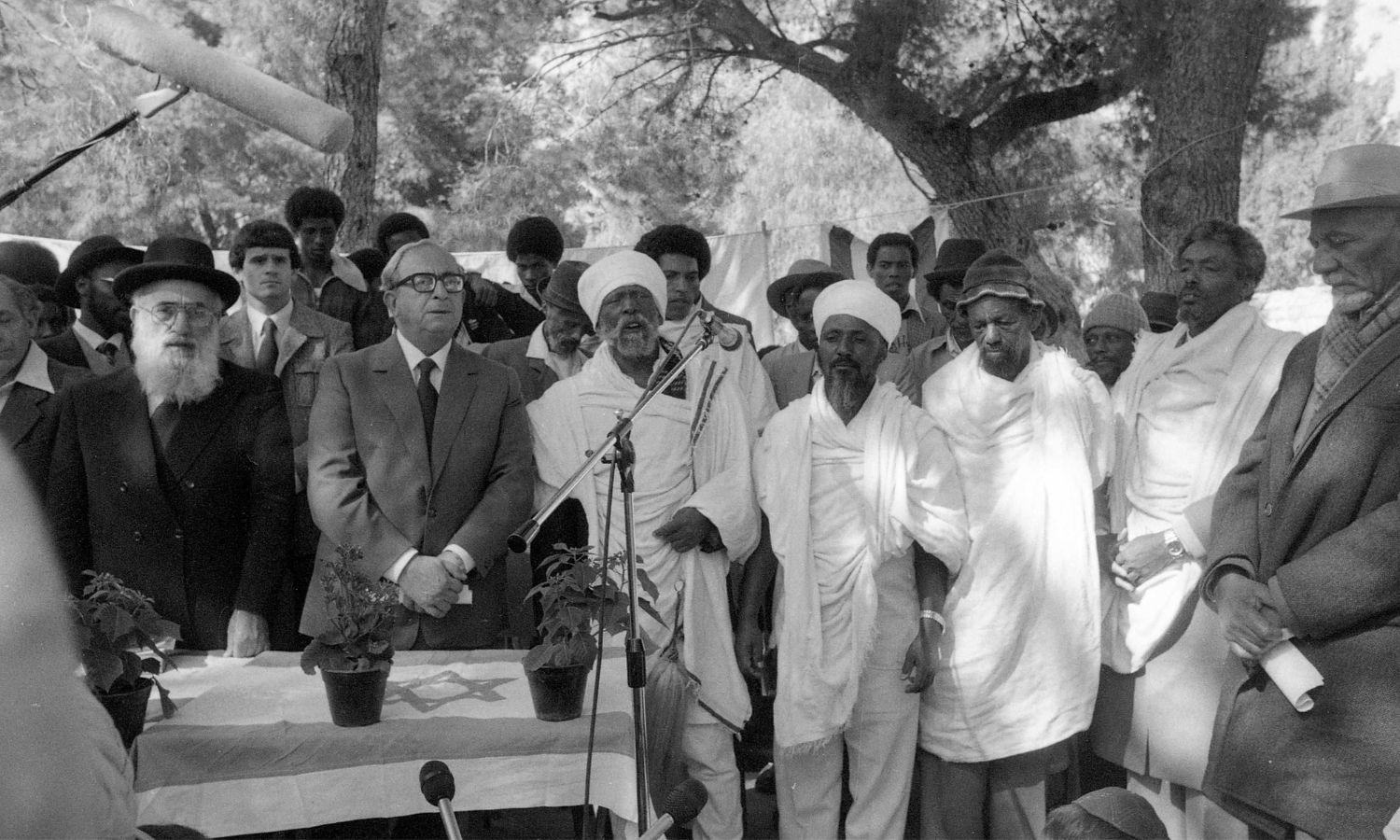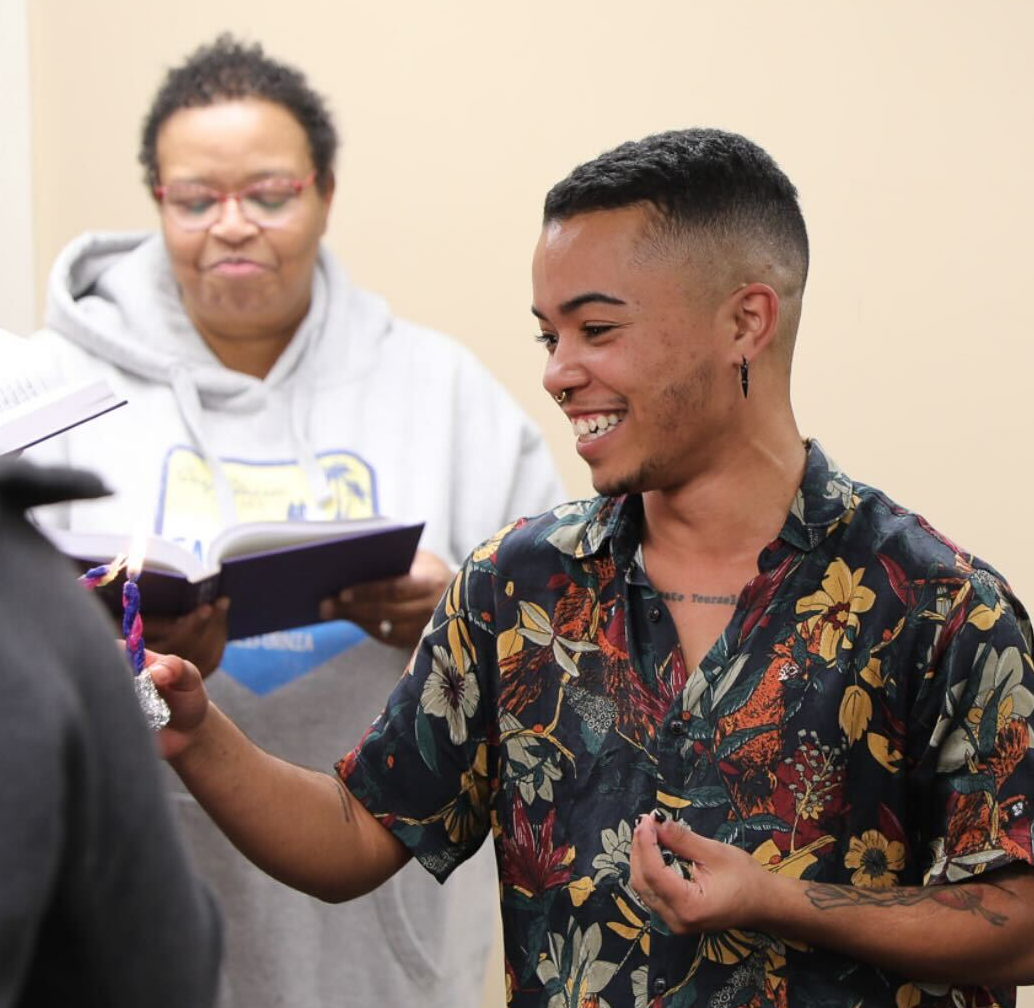What does it mean to be young, Ethiopian, Israeli and gay? Recently to of the leaders of KALA an Israeli Ethiopian LGBT group dropped by the Be’chol Lashon offices to discuss their experiences and thoughts about identity. They were touring in the United States with A Wider Bridge to raise awareness of the unique challenges they face and their vision for the future. Sara, who works with a youth movement, is one of the founders of KALA. Liel works with the police and has been with KALA almost from its start two years ago.
Tell us a little about yourselves and your backgrounds
Liel: I came out when I was 18, when I was in my army service. There are no words in Amharic (Ethiopia’s language) for lesbian or homosexual; the only word is a curse that describes a man who wears women’s clothing, so it is hard to come out of the closet. My mom did not understand what I said. Now she understands, but she does not want to understand. We don’t talk about it. She came to Israel in 1991 inOperation Solomon. We don’t live with my father, so my mom is everything for me.
Sara: I’m 28 born and raised in Israel. My family came in 1984 in Operation Moses. I knew about myself and my sexual identity at 15. But I only came out at 20 during my military service.
How did KALA get founded?
Sara: It was founded after I attended gay pride. We wanted to meet other people like me, LBGT Ethiopians. A friend introduced me to a friend, and we opened a secret Facebook page. We do events. We have meetings. We talk about what we want to do with KALA.
What would you say are the specific challenges of being LGBT in the Ethiopian Israeli community?
Sara: We don’t have a word for LGBT so we can’t explain to other people how it feels, they don’t have any knowledge about the LGBT community, they don’t know anything so we have start at the beginning. We try and educate young people who can understand what it means. Everyone has a friend or someone that he knows, and we try and start with that when we explain.
Liel: Most Ethiopians believe in Torah, and they believe that in Torah it says all homosexual relationships are forbidden. That is not really true. When our parents came to Israel, many people say they are not Jewish because they are black, but now they say we are not Jewish because we are LGBT. They think it is a sickness we got from the white people, because we grew up with white people.
At Be’chol Lashon, we believe that telling stories are pretty important in connecting with people across differences and when we don’t understand each other. Does story telling play a big role in what you do?
Sara: Ethiopians are natural storytellers. Every year at the Passover seder my uncle tells his story. He played a role in bringing the Ethiopian Jews to Israel. He tells how he walked out of Ethiopia, he was put in jail for 90 days and they did terrible things to him. After they let him out, he went back and saved more Jews. After 25 years, we told him, we know your story let other people tell theirs. So for the first time I heard the story my sister told of how she came to Israel from Ethiopia. It is an inspiration.
Liel: In Ethiopia our parents had homes, they had jobs, they had money. But they left all of that because they had a dream of going to Israel. Most people think we came here on planes. But my parents walked for kilometers through the desert. Bandits robbed them. Many children were kidnapped, some died, girls and women were raped, but their dream kept them going. I think about what my mother went through to get to Israel, and that helps me keep going towards my dream. It is not easy to be Ethiopian in Israel. There is discrimination; the police harass us.
And it is not easy to be gay or lesbian in the Ethiopian community. Within the Ethiopian community there are many who are so afraid to come out of the closet that they would rather commit suicide. Doing this work is hard. I don’t have to go through a literal desert but it is like a desert nonetheless. When it feels too hard or I want to give up, I draw strength from the fact that my mother followed her dream to Israel.
What are your hopes for KALA?
Liel: It has not always been easy for Ethiopians to tell their stories in Israel. In Israeli schools, we are ashamed of our story so we did not want people to talk about this. The teachers in school were very negative. When they made comments about Ethiopians, we would drop our pencils so we would hide, so we did not have to talk about ourselves. We were ashamed. More recently, we are telling stories and feeling pride in our Ethiopian identity. I think it is important to have KALA; we have a place where we don’t need to choose whether we are Israeli or Ethiopian or gay. In KALA we can be everything we want. This is one of the goals of KALA. We can fit in as our whole selves without losing our Ethiopian identity.
Sara: I want to parents to accept their children when they come out. I want to see KALA grow up. I want people not to be ashamed of any part of who they are. If KALA had existed when I was 15 it would have made a big difference. I want families to support their children.
Do you hope to have families?
Liel: Family is everything in the Ethiopian community. Family is first and the most important thing. We both want to have families
Sara: I want my family to come to my wedding one day. But it is not easy to date. There are not so many open lesbians in the Ethiopian community, and the non-Ethiopian community is not always open to dating Ethiopians. It is hard.
Is there anything that you have learned on your trip to the United States?
Liel: The meeting here today [at Be’chol Lashon], we are used to thinking that we are the only Black Jews. To sit in a room with other Black Jews is really strange, exciting and empowering.
Sara: Meeting other Black Jews, this is really new for me and I’m so emotional. It is so meaningful to know that this community exists.
For more on Jewish LGBT issues, check out MyJewishLearning’s Keshet blog.







